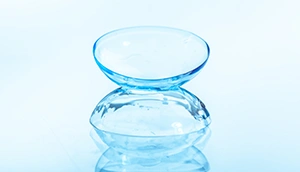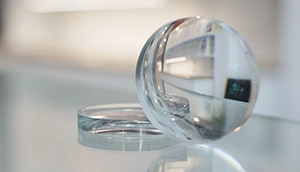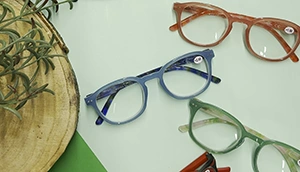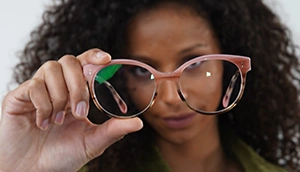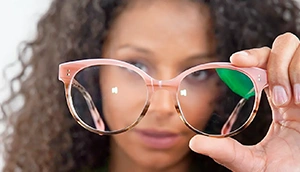In recent years, blue light has been a widely discussed topic, especially with the increased use of digital devices such as smartphones, tablets and computers. Many are concerned about the potential damage that prolonged exposure to this light can cause to the eyes. To clarify these questions, it is important to separate the myths from the facts regarding the effects of blue light on the eyes.
What is blue light?
Blue light is a part of the visible light spectrum, with wavelengths ranging from 380 to 485 nanometres. It occurs naturally in sunlight and artificially in digital devices and LED lamps. There are two types of blue light: turquoise blue light, which has health benefits, and violet blue light, which can be harmful in large quantities.
Myth 1: All Blue Light Is Dangerous
It is a common misconception that all blue light is harmful. However, this is not true. Turquoise blue light plays a vital role in regulating our circadian rythm, which controls our sleep and wake patterns. In addition, this light helps improve mood and cognitive function.
Fact 1: Excess Blue Light Can Cause Digital Eye Strain
Digital eye strain is a real problem resulting from prolonged use of digital devices. Symptoms include dry eyes, blurred vision, headaches, and eye fatigue. Blue light, emitted in large quantities by these devices, can contribute to this fatigue. The 20-20-20 rule (looking at something 20 feet (6 metres) away for 20 seconds every 20 minutes) can help alleviate these symptoms.
Myth 2: Blue Light Causes Irreversible Damage to the Retina
There is a widespread fear that blue light causes irreversible damage to the retina and leads to macular degeneration. Scientific studies have found no conclusive evidence that exposure to blue light from digital devices causes permanent eye damage. However, prolonged exposure to any type of intense light, including blue light, can be harmful to the eyes.
Fact 2: Blue Light Can Affect Sleep
Exposure to blue light at night can interfere with the production of melatonin, the hormone responsible for regulating sleep. This can result in difficulty falling asleep and poor sleep quality. Reducing digital device use before bedtime or using blue light filters can help mitigate these effects.
Myth 3: Blue Light Filter Glasses Are Necessary for Everyone
While blue light filter glasses may benefit some people, especially those who spend long periods in front of electronic devices with LEDs, they are not necessary for everyone. The benefits of these glasses are still a topic of debate among experts. For many people, simple behavioural adjustments, such as taking regular breaks and using the night light setting on devices, may be sufficient.
Fact 3: Natural Light Is Important for Eye Health
Spending time outdoors in natural light is important for eye health. Studies indicate that exposure to natural light may reduce the risk of children and adolescents developing myopia. Sunlight contains an optimal balance of blue-turquoise light, which is essential for overall eye health.
Conclusion
Blue light has complex effects on eye health. While there is no need for excessive concern, it is important to be aware of its effects and take steps to protect your eyes, particularly when using digital devices for long periods of time. Understanding the difference between myths and facts about blue light helps you to make informed decisions regarding your eyes health. The key to healthy vision remains prevention through balanced behaviours and the appropriate use of technologies.







